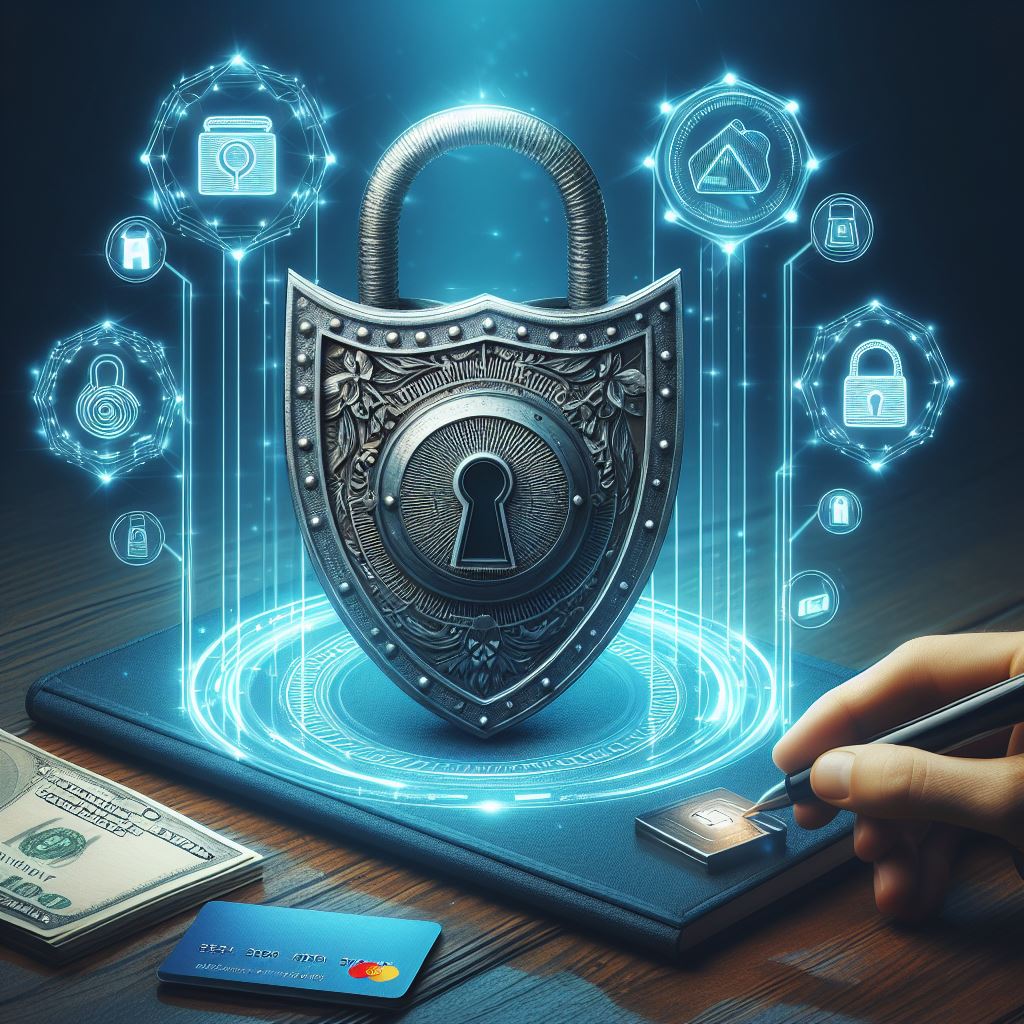
Protecting Your Purse Strings - Day 29: PCI DSS 3.0: The Cybersecurity Measures You Need
“You have to be prepared to fight and finish your own battles.” - Jim Harbaugh
Introduction:
As you continue on your cybersecurity journey toward safeguarding your financial transactions and ultimately securing your dream vacation, it's imperative to understand the critical measures outlined in PCI DSS 3.0. Just as you wouldn't embark on a trip without a map or a plan, navigating the complexities of payment card data security requires a clear understanding of the guidelines set forth by the Payment Card Industry Data Security Standard (PCI DSS) version 3.0.
In our featured story, we talked about how can ZATIS help a financial institution protect it's purse strings and win in the battle against hackers and cybercriminals. Join us today as we discuss the measures outlined in PCI DSS 3.0, providing a clear understanding of what you need to secure your payment card data.
Understanding PCI DSS 3.0

PCI DSS 3.0 is a set of comprehensive security standards designed to ensure that all companies that accept, process, store, or transmit payment card information maintain a secure environment. Whether you're a small business owner processing transactions online or a large corporation handling thousands of transactions daily, compliance with PCI DSS 3.0 is essential to protecting sensitive cardholder data and maintaining customer trust.
Key Measures for Compliance

1. Protect Cardholder Data:
The first step toward compliance with PCI DSS 3.0 is to implement robust measures to protect cardholder data. This includes encryption of cardholder data both in transit and at rest, as well as strict access controls to limit access to sensitive information.
2. Maintain a Secure Network:
A secure network infrastructure is vital to preventing unauthorized access to payment card data. Implementing firewalls, regularly updating system components, and disabling unnecessary services are essential steps in maintaining network security.
3. Vulnerability Management:
Regularly scanning for vulnerabilities and addressing security weaknesses is crucial for maintaining compliance with PCI DSS 3.0. Implementing patches and updates in a timely manner can help mitigate the risk of data breaches and ensure the integrity of your payment card environment.
4. Access Control:
Limiting access to cardholder data to only those individuals who require it for their job responsibilities is a fundamental principle of PCI DSS 3.0. Implementing strong authentication measures, such as unique user IDs and passwords, helps prevent unauthorized access to sensitive information.
5. Monitoring and Testing:
Continuous monitoring of your payment card environment and regular testing of security controls are essential components of PCI DSS compliance. Implementing intrusion detection systems, conducting regular security assessments, and maintaining audit logs are critical measures for identifying and mitigating potential security threats.
The Road to Compliance and Beyond

Achieving compliance with PCI DSS 3.0 requires dedication, resources, and a commitment to prioritizing security. However, the benefits extend far beyond mere compliance. By implementing the necessary security measures outlined in PCI DSS 3.0, you not only protect sensitive cardholder data but also safeguard your reputation, build customer trust, and ultimately pave the way for your well-deserved dream vacation.
As you continue on your journey toward securing your financial transactions and protecting your purse strings, remember that compliance with PCI DSS 3.0 is not just a mandatory requirement – it's a strategic investment in the future success of your business and the realization of your dream vacation.
So, buckle up and embrace the journey toward PCI DSS compliance, knowing that each step brings you closer to your destination – a worry-free getaway where you can truly relax and enjoy the fruits of your hard work.

The Importance of Proactive Cybersecurity Measures
In order to safeguard against the dangers of cyber threats, financial institutions must be proactive towards cyber security. By implementing strong cybersecurity measures, companies can safeguard their assets, uphold client trust, and ensure smooth project operations. Here are some key steps that financial companies can take:
1. Employee Education and Training:

Employees are often the first line of defense against cyber threats. Providing comprehensive training on cybersecurity best practices, such as identifying phishing emails and using strong passwords, can significantly reduce the risk of successful attacks.
2. Regular Security Assessments:

Conducting regular security assessments, including vulnerability scanning and penetration testing, can identify potential weaknesses in the company's systems and infrastructure. This allows for timely remediation before cybercriminals can exploit these vulnerabilities.
3. Secure Network Infrastructure:

Implementing robust firewalls, intrusion detection systems, and encryption protocols can help safeguard the company's network infrastructure from unauthorized access and data breaches.
4. Access Control and Authentication:

Implementing strong access control measures, such as multi-factor authentication and role-based access controls, can ensure that only authorized individuals have access to sensitive information.
5. Data Backup and Recovery:

Regularly backing up critical data and implementing a robust disaster recovery plan can help minimize the impact of a cyber-attack and facilitate the restoration of operations.
Conclusion:
In the context of today's digital age, financial institutions must recognize the paramount importance of cybersecurity and take proactive measures to safeguard their valuable assets. Neglecting cybersecurity can expose them to severe consequences, such as financial losses, reputational damage, project delays, legal and regulatory compliance issues, and loss of intellectual property. By prioritizing cybersecurity and implementing robust measures, financial companies can protect their operations, foster client trust, and ensure their long-term success in an ever-changing digital landscape.
Want to know if your financial company is at major risk of getting hacked? Click here for a FREE 15-Minute Cyber Consult.

5 Reasons Your Financial Company Needs a Cybersecurity Risk Assessment. 👊
It is important for financial companies to conduct a cybersecurity risk assessment for several reasons:
1. Protection of sensitive data:
Financial companies handle a vast amount of sensitive data, including financial information, project details, client information, and employee records. Conducting a cybersecurity risk assessment helps identify potential vulnerabilities and ensures appropriate safeguards are in place to protect this data from unauthorized access, data breaches, or theft.
2. Mitigating financial losses:
Cyberattacks can result in significant financial losses. These losses can stem from data breaches, ransomware attacks, or the disruption of critical systems. By conducting a cybersecurity risk assessment, companies can identify potential weaknesses in their IT infrastructure and take proactive measures to mitigate the financial risks associated with cyber threats.
3. Maintaining business continuity:
A successful cyber-attack can disrupt projects, delay timelines, and impact the overall business operations. By conducting a risk assessment, financial companies can identify potential vulnerabilities and implement robust cybersecurity measures to ensure business continuity. This includes having backup systems, disaster recovery plans, and incident response protocols in place.
4. Protecting reputation and client trust:
Financial companies heavily depend on their reputation and the trust of their clients to secure new projects and contracts. However, a cybersecurity breach can easily jeopardize that trust, damage the company's reputation, and ultimately lead to the loss of clients. By conducting a thorough risk assessment and implementing appropriate cybersecurity measures, financial companies can demonstrate their unwavering commitment to protecting client data and maintaining a secure operating environment.
5. Compliance with regulations:
Companies may be subject to industry-specific regulations and legal requirements regarding data protection and cybersecurity. Conducting a risk assessment helps identify any gaps in compliance and ensures that the company meets the necessary regulatory obligations.
Overall, conducting a cybersecurity risk assessment allows companies to proactively identify and address potential vulnerabilities, protect sensitive data, mitigate financial losses, maintain business continuity, protect their reputation, and comply with relevant regulations.
Other resources to help you get started with Cybersecurity
Start your own Cybersecurity initiative:
Here is a quick checklist to get you started with your Cybersecurity initiative. Remember imperfect action beats inaction, get started and keep pushing for progress and awareness with your people.
Update your software
Secure your files
Require passwords
Encrypt devices
Use multi-factor authentication
Protect your wireless network
Make "SMART SECURITY" your business as usual
Require strong passwords
Train all staff
Have a plan
